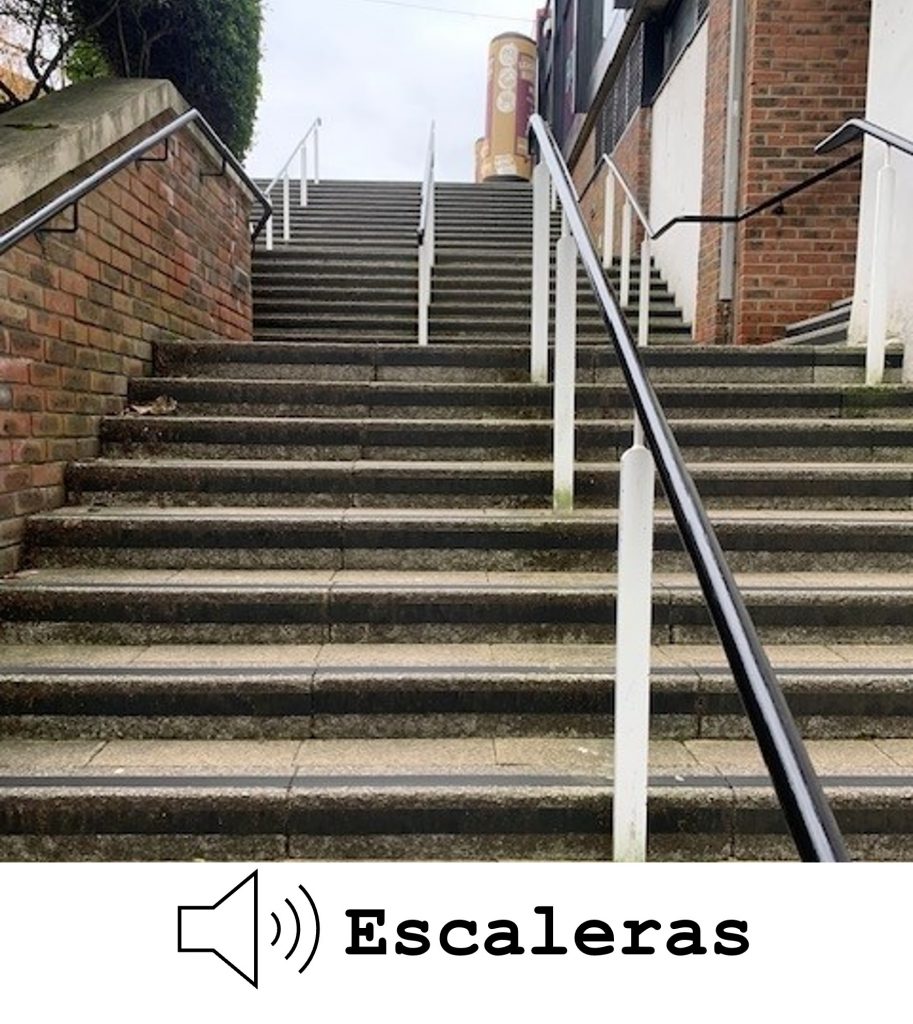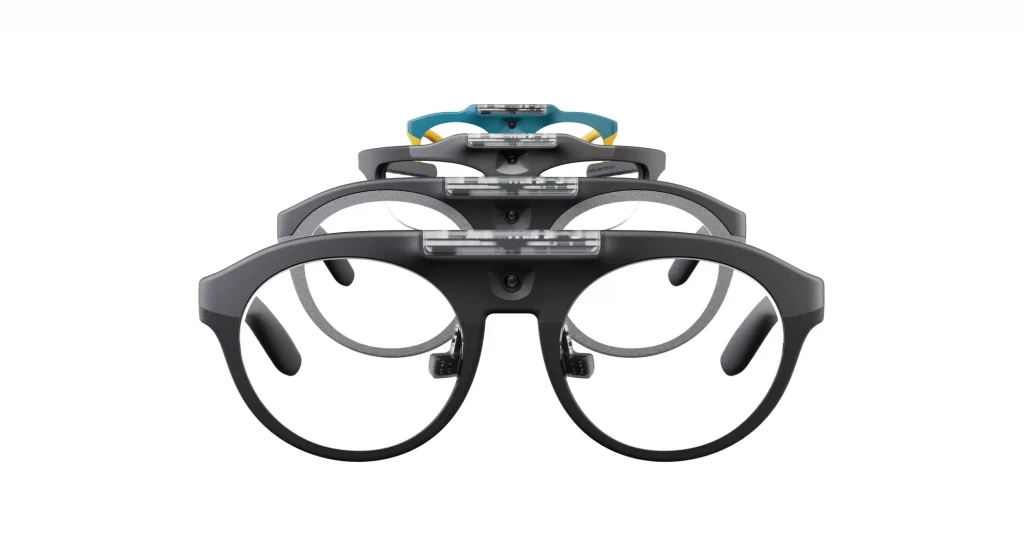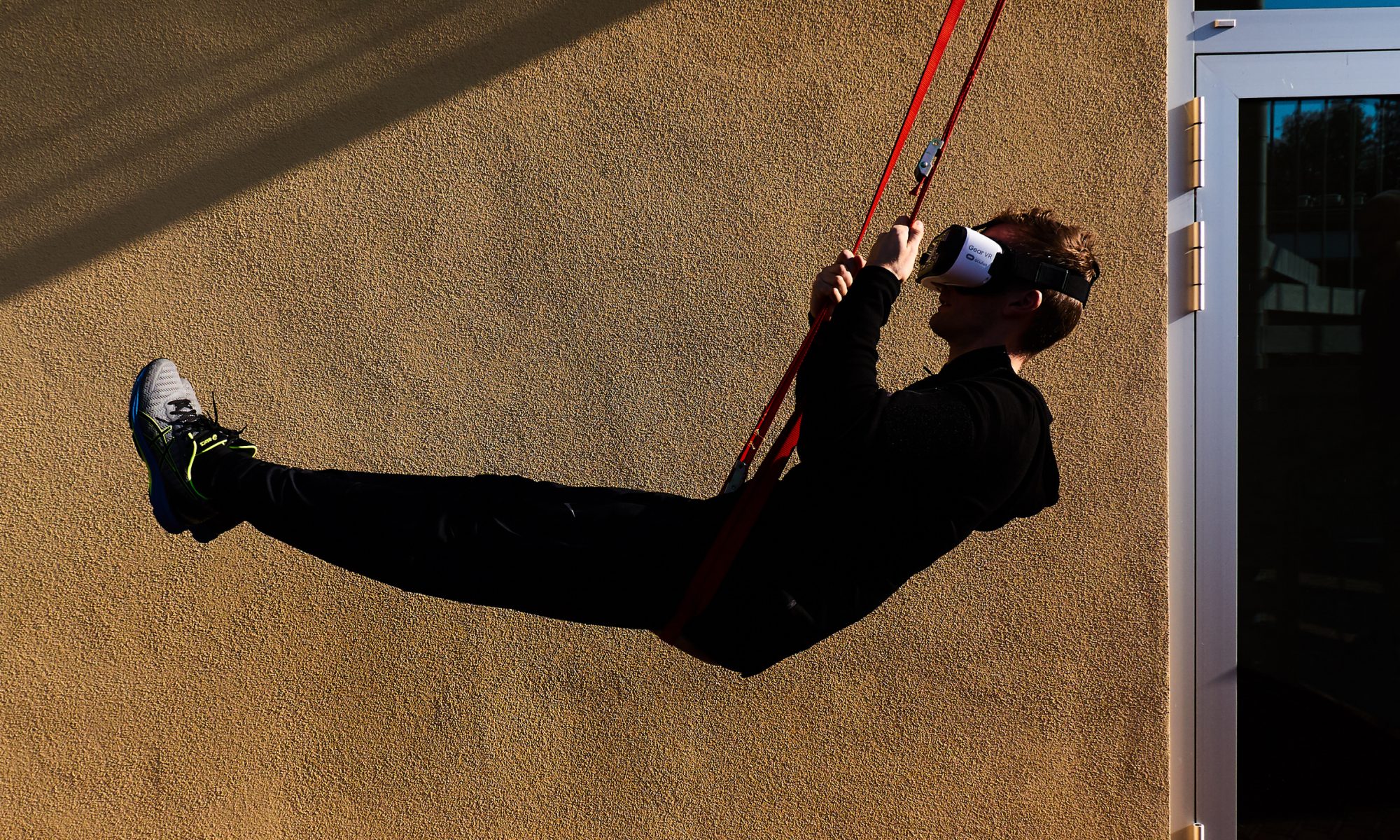We’re wired to learn with movement. The cerebellum (the little brain) has a lot to do with movement organisation. Research is showing that this part of the brain also has a lot to do with social interaction and with language. So our question is: can movement – over under around and through an environment help learn a second language? That’s our starting place. Some recent work shows that if people get onto a stationary bike, their vocabulary retention is better than being static. We’re interested if moving around in a real environment around real objects as you learn their names in that second language might be even better in terms of retention.

Figure 1: Language learners will be given audio translations of objects or useful phrases as they encounter them while walking.
Through the CERA project, we are developing an audio based AR language learning system to better understand the relationship between movement in an environment and foreign language learning. The research is based on the hypothesis that a language learning tool that allows aspiring language learners to connect new vocabulary with a meaningful context in the environment all while engaging the body physically and stimulating the cerebellum can lead to better language learning outcomes and more accessible learning.

Figure 2: Pupil Labs glasses that will be used in the first CERA study.
Research Questions
Can an audio-based AR language learning system that relays vocabulary from the physical environment to the user as they walk help facilitate better vocabulary retention in comparison to traditional learning methods? And ultimately, does movement in an environment while learning have a fundamental connection to better and more sustained learning?
Currently, we are conducting an initial pilot study that compares 1-week vocabulary retention using the CERA audio-AR language learning method versus traditional vocabulary learning methods.
CERA Audio AR Learning Method
The CERA AR learning method relays vocabulary in the context of their environment to users while they are going about their daily lives. Vocabulary information will be relayed to the users through audio based AR, so when a user walks by a coffee shop and stops to look at it, the system will play an audio recording of the translation by a native speaker in their target language. Initially, we are exploring how this system works with basic vocabulary learning, but future studies will explore how best to identify what users are looking at, what vocabulary is most meaningful to them, and other potential language learning uses such as common phrases.
CALL FOR PARTICIPANTS – INITIAL PROOF OF CONCEPT STUDY (ERGO #: 91030)
We are looking for participants for an ERGO approved study (ERGO#: 91030) that explores the relationship between movement and language learning through a novel audio-based Augmented Reality (AR) language learning system. We will be running a pilot study that asks participants to learn vocabulary words from an artificial language while walking around campus.
Who Can Participate in the Study?
Criteria for inclusion:
- Adults 18+ years of age
- Monolingual
Criteria for exclusion:
- Impaired mobility
- Severely impaired vision
- Impaired hearing
Time Commitment
Participating in this study will require an initial session that will take an estimate of 1 hr and a 1-week online follow-up via Microsoft Teams that will take an estimate of 20 minutes.
Compensation
We are offering £20 in compensation for anyone who participates.
Participant Information Sheet
For more information on the study, please reference the Participant Information Sheet: CERA_ParticipantInformationSheet.docx
Register Your Interest
Please complete the survey at the following link to register your interest in participating in the study: https://southampton.qualtrics.com/jfe/form/SV_djzsFjB8xVLJeTQ
Lead Researcher – Chris Tacca
Collaborators
